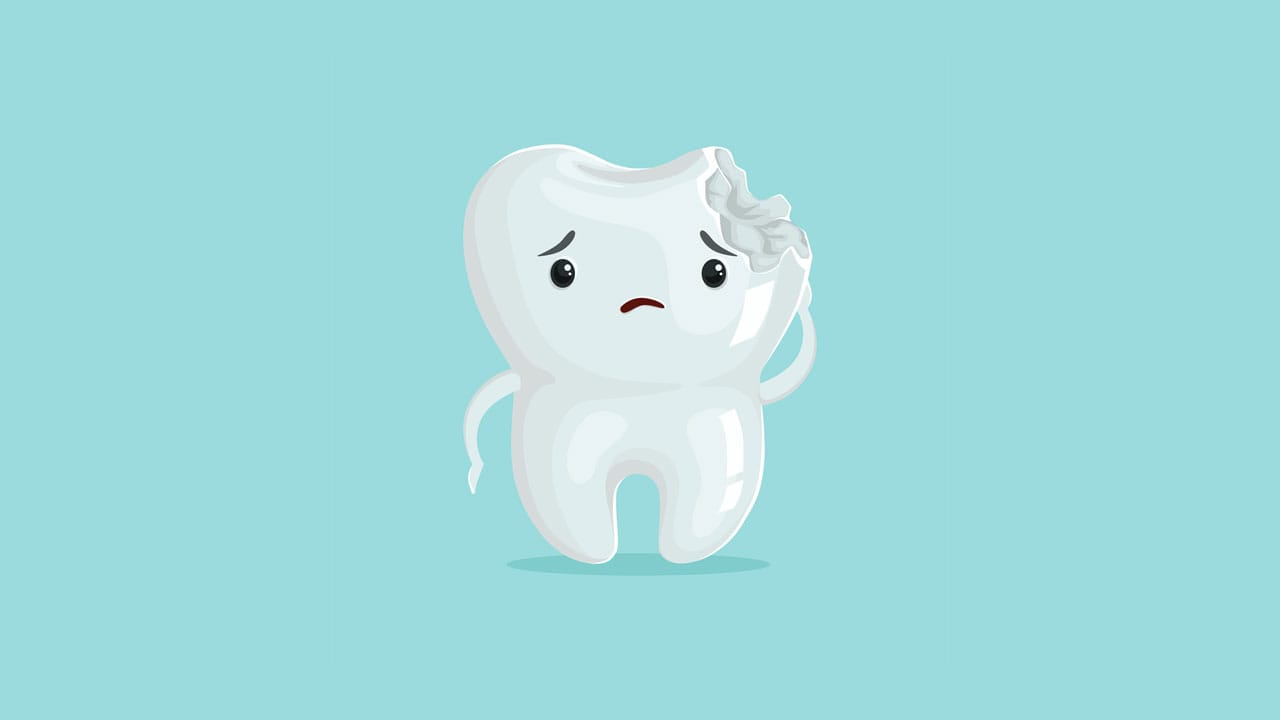
If you’re experiencing a toothache and wondering, “Do I have a cavity?”, it’s important to visit the dentist immediately. There are four words we all hope we don’t hear: “Yes, you have a cavity.” And while we all dread this diagnosis, it is better not to ignore your tooth problem—or other oral health issues may crop up as a result! Therefore, if you’re experiencing any of the following cavity symptoms, make sure you pay a visit to the dentist straight away.
1. If your tooth is aching for seemingly no reason…
One of the most common symptoms you may experience if you have a dental cavity is a toothache. If your tooth starts to throb—and you’re not experiencing a sinus infection—then this could be a sign of a cavity. When a cavity forms in your dental enamel, it could expose the layer beneath known as the “dentin.” This layer provides direct access to the living tissue, or pulp, within your teeth through numerous microscopic tubules. When your untreated cavity gets to this point, the pulp can become inflamed and cause a throbbing, painful sensation.2. If it hurts to eat certain foods…
While eating ice cream isn’t necessarily the best for your teeth, it shouldn’t hurt to do so! However, if you’re dealing with a cavity, then that just might be the case. Hypersensitivity to heat and cold often comes as a result of your dentin layer being exposed. As mentioned above, exposing this layer can provide direct access to the pulp within your tooth. Therefore, when you bite into hot or cold foods, these stimuli can be much stronger even to the point of being painful. If you’re dealing with hypersensitivity or extra sensitive teeth, this is a clear indicator that you should have your dentist take a look.3. If you can see discoloration or even a hole in your dental enamel…
Do you notice a white spot on your tooth? This is an early sign of decay and could be a warning sign for a cavity, particularly if the spot is sticky. You may even notice a dark spot or hole on the biting surface of your tooth. In this case, the cavity has likely progressed after not being treated for a while. In either of these instances, visiting your dentist sooner rather than later is a good idea. If left untreated, cavities will only further deteriorate the dental enamel and do further damage to the tooth.4. If biting down causes sharp pains…
If placing pressure down on your tooth is painful, you may have a cavity in your dental enamel. Worse still, it could actually mean that the pulp within your tooth is inflamed or infected, and is causing issues with the root beneath. Cavities, when left untreated, can lead to infections deep within the tooth. In these cases, a simple filling may no longer be the best option for treatment and, instead, a root canal procedure may be the best way to salvage your natural tooth. While root canals are not as painful as they’re rumored to be, seeking earlier and less invasive treatments for your damaged tooth is always preferred. Either way, the sooner you can get into dental treatment when experiencing this symptom, the better.5. If you have bad breath or halitosis
Bacteria build-up in the mouth can cause bad breath, which may be a sign of dental decay or dental cavity. The bacteria produce waste which can cause various effects, one of which is a foul odor. You may experience an unpleasant taste in your mouth occasionally. Such smell and taste can be difficult to conceal.6. If the tooth is discolored
Discoloration on teeth is a visible sign of tooth decay, which may eventually lead to cavities. The decay can cause physical changes to the affected teeth. You should also keep an eye on spots that grow in size or appear as a light, off-white color.7. If the gums swell and bleed
Gum disease can indicate different types of cavities. Some cavities are located close to the gum line, resulting in symptoms that affect the gums. If you notice that your gums are swollen or bleed frequently, especially during brushing or flossing, it is recommended to schedule an appointment for a dental health check. Regular dental check-ups can help you catch these issues early before they worsen. So, it is essential to stay up-to-date with your dental appointments.How to Prevent Cavities
The first step in preventing cavities is by maintaining good oral hygiene. To safeguard yourself from cavities and other severe tooth decay concerns, consider the following effective measures:- Brush your teeth using fluoride toothpaste at least two times a day.
- Make it a habit to floss regularly, at least once a day to remove food residues between your teeth.
- Drink water throughout the day to rinse your teeth and enhance saliva production. A dry mouth can increase your chances of having cavities.
- Minimize regular consumption of sugary foods or sodas and juices.
- Visit your dentist for regular dental care and exams.
How to Tell If You Have a Cavity: The Warning Signs Explainedhttps://www.healthline.com/health/signs-of-a-cavity#prevention